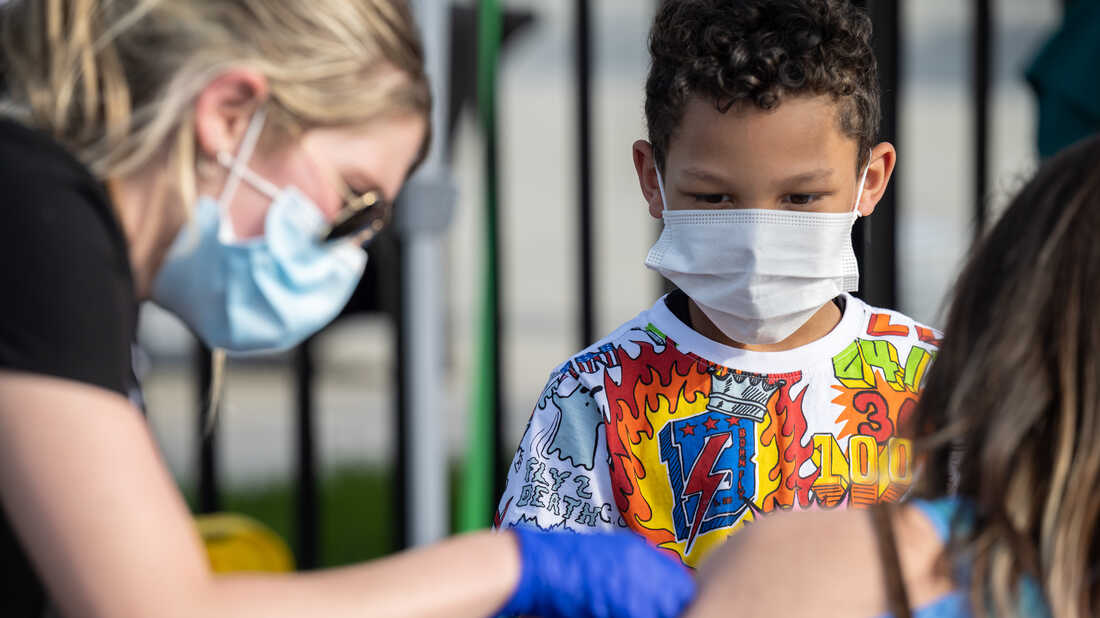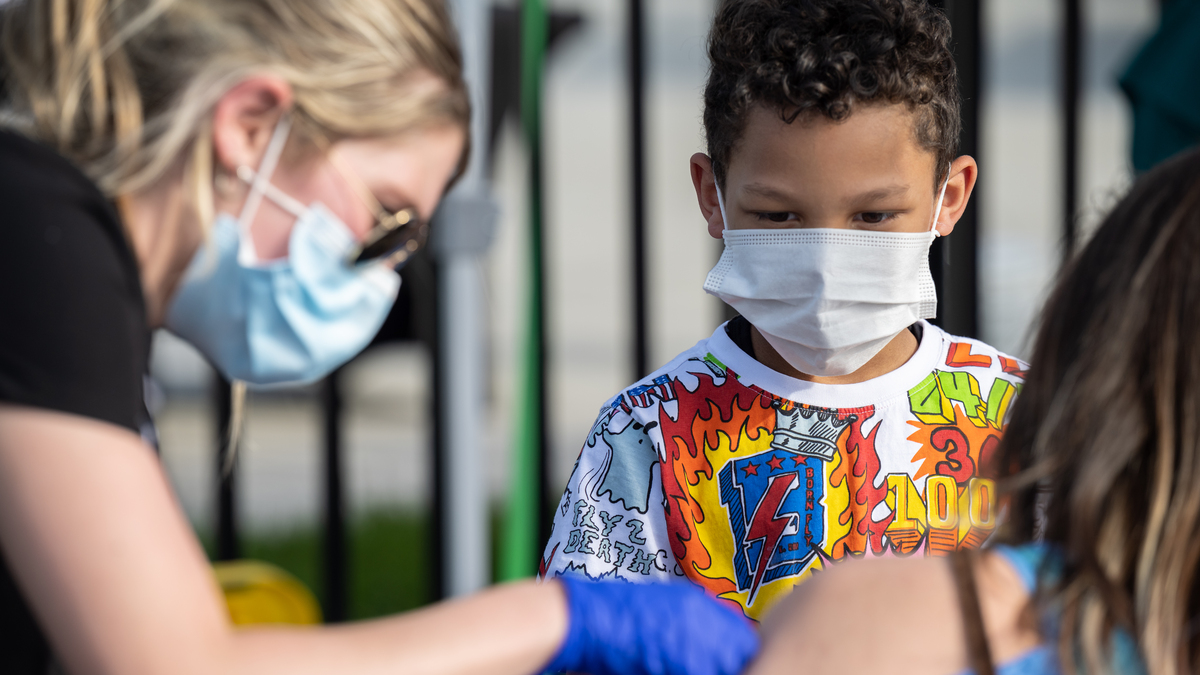
A child watches as a nurse administers a COVID-19 vaccine during a pop-up vaccination event in April at Lynn Family Stadium in Louisville, Ky. Jon Cherry/Getty Images hide caption

A child watches as a nurse administers a COVID-19 vaccine during a pop-up vaccination event in April at Lynn Family Stadium in Louisville, Ky.
Jon Cherry/Getty ImagesMost kids are now in their third year of school during the pandemic. It's been a time of ups and downs; adjustments and re-adjustments. Some have flourished in online school and want to stay home — others have floundered and are excited to go back.
NPR spoke to a group of kids ages 6 and up about what the pandemic has been like, and how they're feeling about the new school year.
Two experts in childhood education and development explain how the pandemic has challenged kids and what we can do to help them: Robin Lake, director of the Center on Reinventing Education; and Katie McLaughlin, a psychologist at Harvard University.
Email us at
This episode was produced by Brianna Scott, Alejandra Marquez, and Brandon Shillingford, and Brent Baughman. It was edited by Fatma Tanis. Our executive producer is Cara Tallo.

 Live Radio
Live Radio